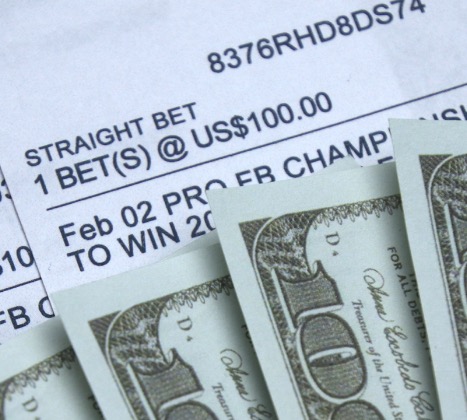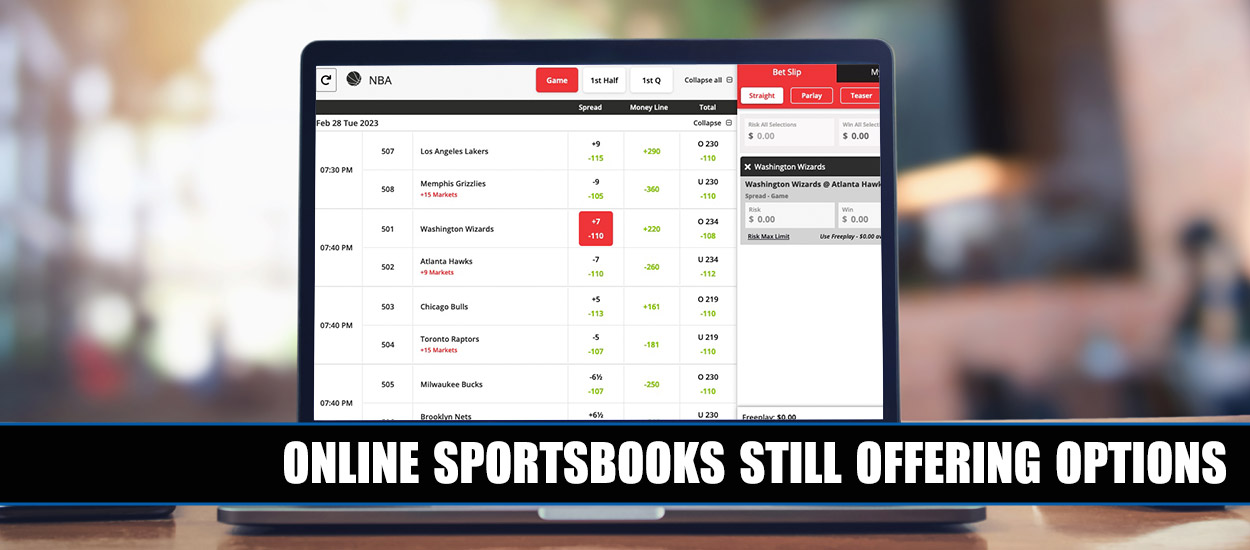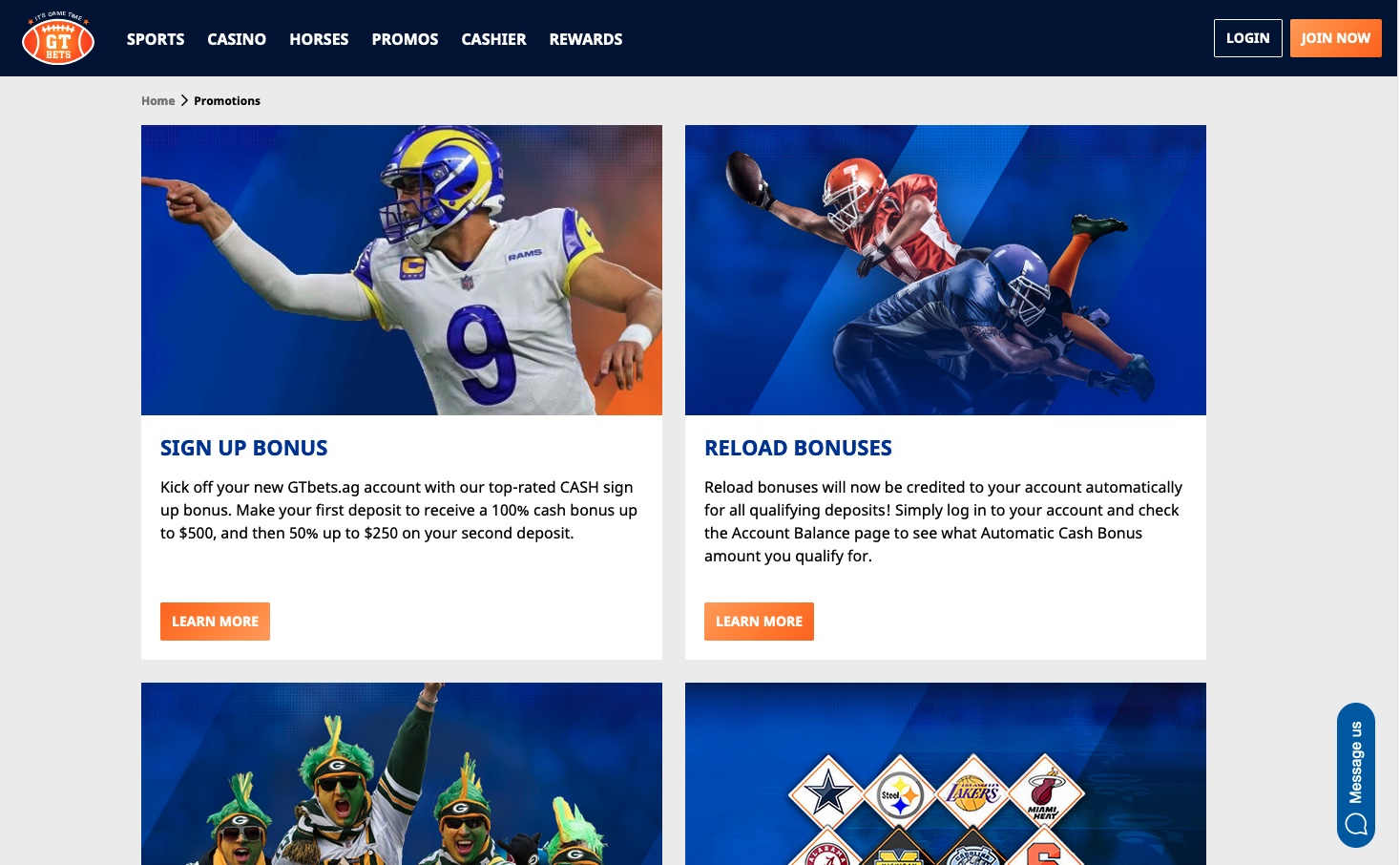Having multiple "outs" is a best practice for sports betting
I was recently talking with a betting manager who worked with an offshore sports betting company and now works with a sportsbook licensed in several states and Ontario about the future of offshore wagering. We had some nominal chit-chat, but I asked if he was open to an interview. He responded that he would be willing to provide some insights as long as he and his employers can remain anonymous.
My first question was how long he believes offshore gambling sites can remain viable to people located in the United States and Canada if gambling expands in both places. A bit to my surprise he said that offshore sportsbooks still have quite a bit to offer versus regulated gambling, particularly in the United States and that the future in both places is bright.
"I know several people who used to be clients of ours that are still betting offshore,” Jim (not his real name) told me. There are several advantages to offshore betting such as the ability to hide winnings from the tax man if you are a profitable gambler, the close relationships you build with bookies offshore who will often give you limits and even offers you may not be able to get with a regulated book, and most importantly VIP treatment.  This last point can't be overstated. Larger bettors at a place like FanDuel, DraftKings or even our site will receive a few basic comps such as free bets, but to professional gamblers those are irrelevant. A free $200 bet in their account isn't going to excite them. What really matters to professionals are threefold, the ability to be first to bet on lines, better vig, and credit betting. To a professional gambler the line is everything. If the Bills are opening at -5 and the professional rates them as a 7-point favorite, the ability go get that point to 2 point advantage before the line opens to the public is critical. And just as important is being able to wager on a 10 to 14 cent line often given to the best clients offshore versus the 20 to 30 cent line that is standard at regulated books, and non-negotiable. Bettors such as Billy Walters would never bet a 30 cent line because he is aware that doing so would put him in the red in the long run. As for credit betting, no one wants to put up money ahead of time if they don't have to. It's better to wager with money on paper and settle up when it's necessary to do so. But credit betting is an absolute no-no in a regulated market. It's not even a starting point. All bets have to be placed with money that is in a player's account and all transactions are transparent for both the player and the government to see. Offshore, bookies in places like Costa Rica or Jamaica would take large bets with the understanding that the credit is good and either side would only call in the amounts owed when it reaches a point that they agree to ahead of time."
This last point can't be overstated. Larger bettors at a place like FanDuel, DraftKings or even our site will receive a few basic comps such as free bets, but to professional gamblers those are irrelevant. A free $200 bet in their account isn't going to excite them. What really matters to professionals are threefold, the ability to be first to bet on lines, better vig, and credit betting. To a professional gambler the line is everything. If the Bills are opening at -5 and the professional rates them as a 7-point favorite, the ability go get that point to 2 point advantage before the line opens to the public is critical. And just as important is being able to wager on a 10 to 14 cent line often given to the best clients offshore versus the 20 to 30 cent line that is standard at regulated books, and non-negotiable. Bettors such as Billy Walters would never bet a 30 cent line because he is aware that doing so would put him in the red in the long run. As for credit betting, no one wants to put up money ahead of time if they don't have to. It's better to wager with money on paper and settle up when it's necessary to do so. But credit betting is an absolute no-no in a regulated market. It's not even a starting point. All bets have to be placed with money that is in a player's account and all transactions are transparent for both the player and the government to see. Offshore, bookies in places like Costa Rica or Jamaica would take large bets with the understanding that the credit is good and either side would only call in the amounts owed when it reaches a point that they agree to ahead of time."
I asked Jim if cryptocurrency is a benefit to betting offshore.
"Yes and no. Bitcoin definitely helped us keep some recreational bettors in United States that weren’t comfortable depositing with other methods, such as money transfers, but our site had a lot of bettors from other countries who were still able to deposit with credit cards and some e-wallets like Moneybookers, so it wasn't a life saver as it likely was with books where the clientele was almost all American.  But I think the big advantage of Bitcoin is that it is anonymous. The company I work for now will automatically send a WG-2 to any winning bettors based in the United States. So if a professional gambler doesn't want to give the IRS a portion of his winnings, he won’t have to offshore. But no regulated site would follow suit. Legally the bettor is obligated to report winnings of course in the U.S., but companies in the Caribbean tell the clients to follow the laws of their residence. We never withheld funds to satisfy the government."
But I think the big advantage of Bitcoin is that it is anonymous. The company I work for now will automatically send a WG-2 to any winning bettors based in the United States. So if a professional gambler doesn't want to give the IRS a portion of his winnings, he won’t have to offshore. But no regulated site would follow suit. Legally the bettor is obligated to report winnings of course in the U.S., but companies in the Caribbean tell the clients to follow the laws of their residence. We never withheld funds to satisfy the government."
Then I asked if he would tell people to bet offshore or with a licensed, regulated company if they were seeking advice.
"If they are recreational bettors I would definitely suggest betting with a regulated company and, to be honest, I would tell them to sign up with as many companies as possible. Aside from better payment options, there are a great deal of great bonuses offered for signing up and ongoing bonuses for maintaining an account, along with referral bonuses, bet boosts and propositions you won’t see offshore. Recreational gamblers likely won’t have winnings they need to worry about at tax time and regulated gambling sites offer numerous props that recreational bettors like. For professionals, I think they need to have money at both places. They will be shopping for lines and there are often big differences between what you see offshore and what you see at a regulated site. But professional gamblers already know this and I can almost assure you they know when to bet at their place in Costa Rica, when to bet with a local and when to place their bets at a site like ours."
My last question was, "Do you see a future for offshore gambling if and when almost every state except Utah and Alaska legalizes sports betting?"
His response was quite direct. "As long as the United States is going to tax gambling winnings, there will always be a need for offshore wagering with American bettors."
I also asked management at BetOnline.ag and GTBets.eu similar questions and here are their responses.
"What do you perceive is the value of Americans and Canadians maintaining an offshore account, even as states and provinces legalize sports betting?"
BetOnline:
Any player who takes sports betting seriously should be shopping odds and have at least 2 to 3 or more outs. Offshore sportsbooks, like BetOnline, release early odds allowing you to gain an edge and potential middle opportunity.
GTBets:
Funny enough, I was having this same discussion with some of my friends from back home as well. Honestly, it’s a tough thing to compete with PayPal and Venmo deposits and withdrawals, which is the major factor that my buddies say they prefer playing with FD/DK, however offshore does have a few benefits still:
a. Online Casino – Currently only five states have licensed online casinos, which leaves a big gap for a ton of multi-product players. Our online casino is extremely robust on both mobile and desktop, including live dealer games as well.
b. Horse betting – Currently only 25 states have legalized online horse betting with FanDuel, which still leaves quite a few that do not. Our horse product allows for all bet types, including exotics and long odds. c. I have heard stories about how Uncle Sam is right in your pocket with regulated books, and clearly that is not the case with us.
c. I have heard stories about how Uncle Sam is right in your pocket with regulated books, and clearly that is not the case with us.
d. At some point, regulated books are going to have to start making money. They have been hemorrhaging funds to try and gain market share, but at some point soon, they are going to have to look towards profits. When that time comes, that means they are going to be looking to put the screws to the customers any way they can, so I would expect the introduction of fees for just about everything you can do to be on the horizon.
e. When you bet offshore, your betting account is yours. You don’t need to share that information with anyone, including your wife/husband.
BetOnline also noted that the future for some of the regulated sites may not be as rosy as it appears. "The Domestic shops offer unrealistic bonuses and aggressive gimmicks that often get them into multiple layers of trouble, at BetOnline we’ve been in the business over two decades and know what promotions and contests players want to see, such as our 250k March Madness Bracket Contest."
So, it's clear that offshore gambling companies are rightly concerned that they will lose a lot of business as more and more states begin to license and regulate sports betting, but it's also clear that they offer many benefits that regulated sites can not, including issues relating to taxation, better vig and in some instances the ability to bet on credit too. There will almost certainly come a time when offshore betting will not be as prevalent as it still is, but as Jim said to me "as long as the United States is going to tax gambling winnings, there will always be a need for offshore wagering with American bettors," and unfortunately there will also be a place for local bookies who ask no questions, but who may invoke ways to ensure you pay up that aren’t ethical or legal either.
Read insights from Hartley Henderson every week here at OSGA and check out Hartley's RUMOR MILL!







































